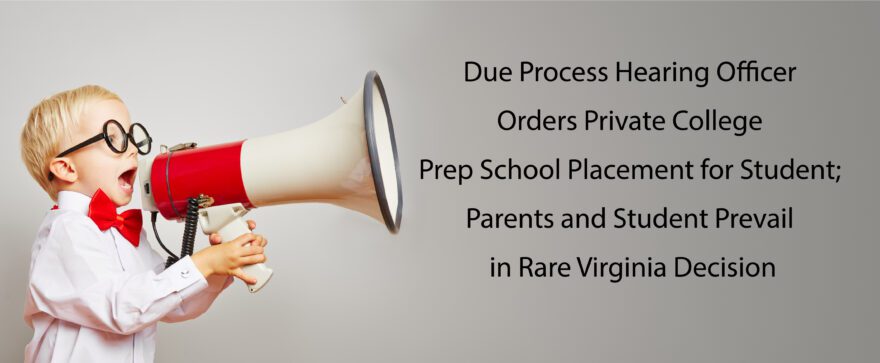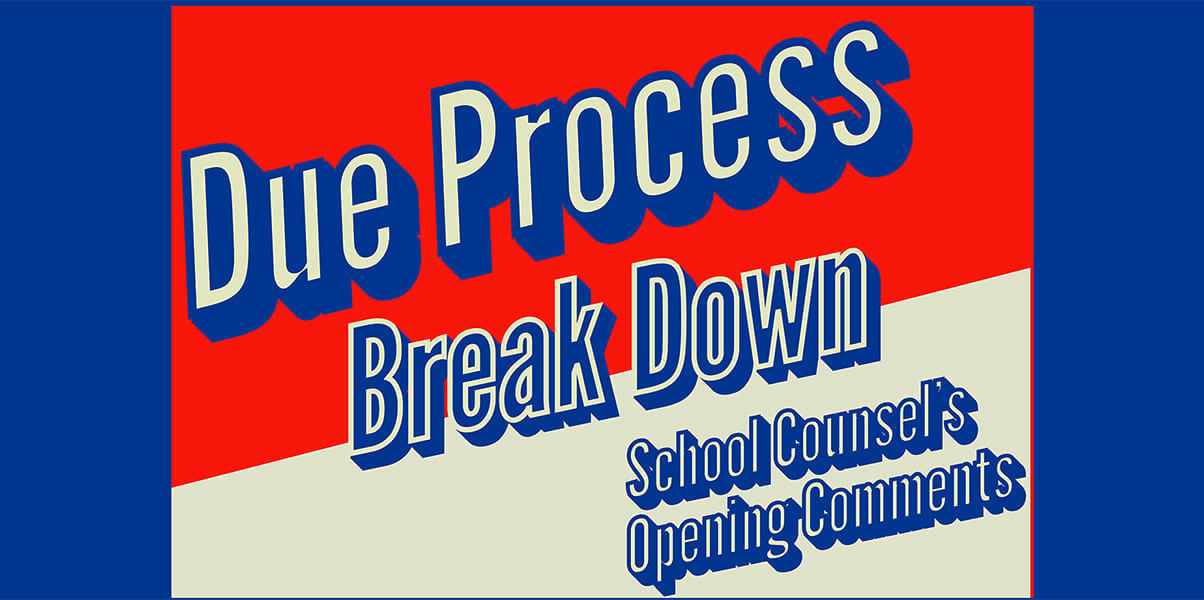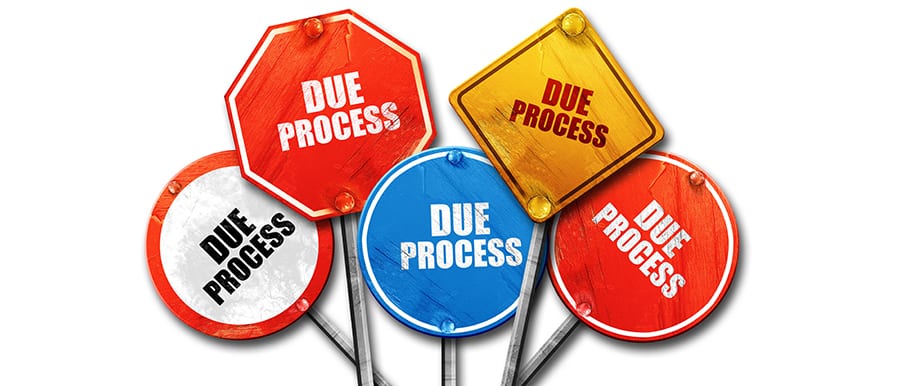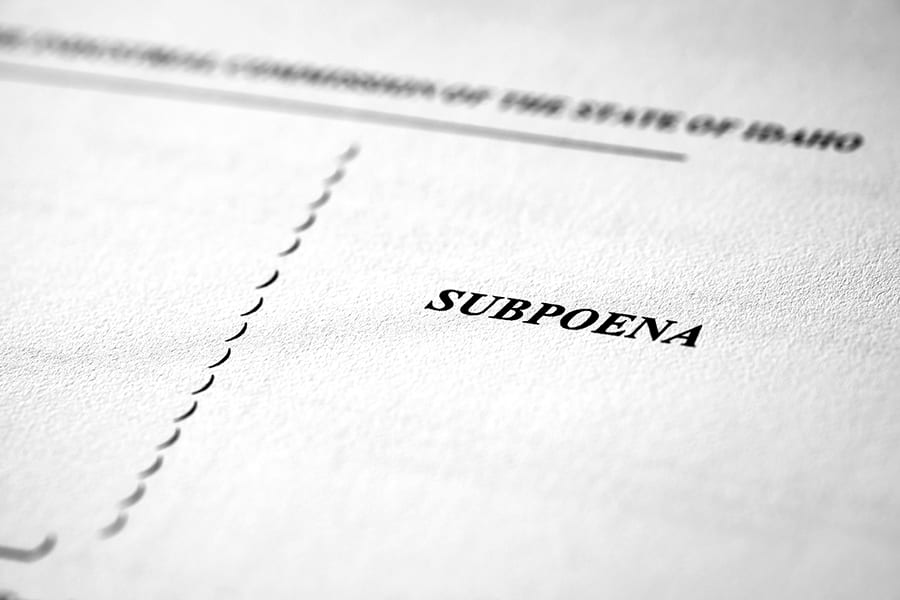Prepare for Due Process
Due Process Hearing Officer Orders Private College Prep School Placement for Student; Parents and Student Prevail in Rare Virginia Decision
When Hearing Officer Rhonda Mitchell found a private college preparatory school to be the appropriate placement for the student, and ordered PWCPS to pay for the student’s tuition, the word unprecedented came to the minds of the parents and their advocate.
Due Process Breakdown: School Division Lawyer’s Opening Statements, John Cafferky 9.30.20
Thank you to everyone who shared and who reached out to me about the recent article “Second Virginia Hearing Officer Rules Reading Program Inappropriate for Student with Dyslexia”.
Today’s article shares more information about how that hearing played out, starting with the opening remarks presented by Fairfax County Public Schools’ (FCPS) counsel John Cafferky of Blankingship & Keith.
John presented his opening statements September 30, 2020, the first day of the due process hearing filed against FCPS.
Among other things, the hearing focused on whether the program “Just Words”, which FCPS proposed four school years in a row for the student who was the focus of the hearing, is appropriate for a student who has Dyslexia.
Due Process Diaries: Hearing Officer Confirmation, Pre-Hearing Scheduling, Granting Control to LEA Lawyers
The hearing officer’s confirmation letter and her notice of pre-hearing letter fall on the benign side, with a few exceptions:
Metadata lists them as being associated with the U.S. Army.
They included incorrect information related to the parents.
They granted the LEA’s lawyer control of the conference platform.
Prepare for Due Process by Tapping into the Training Provided to Hearing Officers
Can a hearing officer force a family to meet in person, rather than virtually, even though the family and/or witnesses fall into the category of at-risk?
Can their training help parents prepare for due process?
These are just a few of the questions running through my mind when I submitted a Freedom of Information Act (FOIA) request to the Virginia Department of Education (VDOE) for “all of the training materials that VDOE provides to hearing officers, as well anything else related to their training.”
Due Process Timeline
Per §300.500, each state education agency (SEA) “must ensure that each public agency establishes, maintains, and implements procedural safeguards that meet the requirements of §§300.500 through 300.536”, which includes the due process timeline.
The timeline isn’t stated in one place, so the dates have been pulled from various sections, to provide a one-page rundown of deadlines that follow receipt of a due process complaint.
Due Process Diaries: Don’t Let the School Division Get a Jump Start with Hearing Officers and Subpoenas
While there is a regulated timeline for the assignment of hearing officers to due process hearings (see below), there aren’t federal statutes or regulations stating that the parent and school division be made aware of the hearing officer assignment at the same time.
Due Process Diaries, Part II: Subpoenas
Before I knew a hearing officer had been assigned, Blankingship & Keith, one of the law firms Fairfax County Public Schools (FCPS) taps into for due process hearings, started in with subpoenas.
I’d never been served—much less seen—a subpoena before those arrived.
With the help of Google and God, I got up to speed on subpoenas.
I learned they are kin to a child in a toy shop. Ask the kid what he or she wants, and the response will be everything in sight—plus the G.I. Joe with the Kung Fu grip (for those “Trading Places” fans).
Due Process Diaries, Part I
I filed for Due Process August 26th of this year.
A due process hearing is an experience I could have done without, but I learned a tremendous amount—especially about hearings held via a virtual platform. I learned, too, more than I ever thought I needed to know about the transcripts related to the hearing (more on this later).
In the coming weeks, I’ll share slices of the hearing, from due process filing to final decision—which in this hearing included privacy breaches, perjury, technical glitches, an ADA complaint, denial of full access to the hearing, and denial of rights guaranteed under both federal and state regulations.







